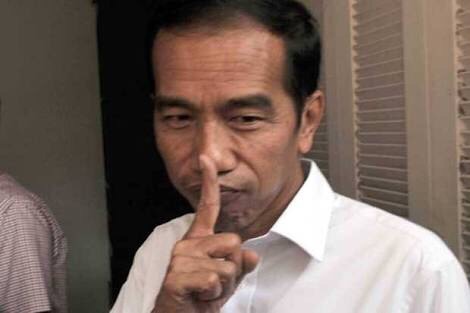President Joko Widodo (Jokowi) has signed government regulation (PP) number 70 of 2020 about procedures for the implementation of chemical castration, installation of electronic detection devices, rehabilitation, and an announcement of the identity of perpetrators of sexual violence against children.
The President’s intention in signing the regulation is to overcome sexual violence against children, provide a deterrent effect on perpetrators, and prevent sexual violence against children.
The regulation will also implement the provisions of article 81A paragraph (4) and Article 82A paragraph (3) of law (UU) number 17 of 2016 for the stipulation of government regulations in lieu of law number 1, year 2016 concerning the second amendment to law number 23, year 2002 concerning child protection into law.
According to article 2, chemical castration, the use of electronic tags, and rehabilitation will be imposed on perpetrators based on a court decision that has permanent legal force.
“The implementation of court decisions as referred to in paragraph 1 and paragraph 2, which shall be carried out by order of the prosecutor after coordinating with the ministry that administers government affairs in the health sector, the ministry that administers government affairs in the legal sector, and the ministry that administers government affairs in the social sector,” states government regulation number 70 of 2020.
Furthermore, this regulation states that chemical castration is carried out for a maximum of two years and is carried out through the stages of clinical assessment, conclusion, and implementation.
According to this regulation, these are the following criteria for the sentences:
- Perpetrators of sexual violence against children.
- Perpetrators of sex with violence against children or threats of sexual violence forcing children to have intercourse with them or with other people.
- Perpetrators of the criminal acts involving obscene acts with children with violence or threats of sexual violence, forcing, committing deception, committing a series of lies, or persuading children to commit or allow obscene acts.
Few parties oppose these regulations. One opponent is the National Commission on Violence Against Women (Komnas Perempuan).
Their reasons for opposition include that the purpose of punishment is to prevent criminal acts being committed by upholding legal norms, socialising the convicted person by providing guidance so that he becomes a good and useful person, and resolves conflicts.
“Castration will not achieve this goal because sexual violence against children occurs from unequal power relations due to age or the perpetrator’s perspective on the victim,” said National Commission on Violence Against Women Commissioner, Siti Aminah Tardi.
Also Read French Tourist Sexually Abused 305 Indonesian Children
The second reason is that sexual violence occurs not only because of libido or for sexual satisfaction. However, said Siti, sexual violence is a form of conquest, an expression of inferiority, showing masculine power, anger or revenge.
“Controlling sexual hormones does not solve sexual violence,” she added.
Siti said castration would change people to become asexual, change their identity, and there was no guarantee that they would return to the way they were before. According to her, castration violates law number 5 of 1998 concerning the convention against torture and other cruel, inhuman, or degrading treatment or punishment.
“There are other ways. Prevention, which includes sexual education; formulation of criminal acts of sexual violence that are not limited to rape and sexual immorality; friendly handling of victims; fulfilment of victims’ rights; and imposing sanctions in the form of actions against perpetrators of sexual violence through special rehabilitation in form of behaviour change counselling,” Siti explained.




